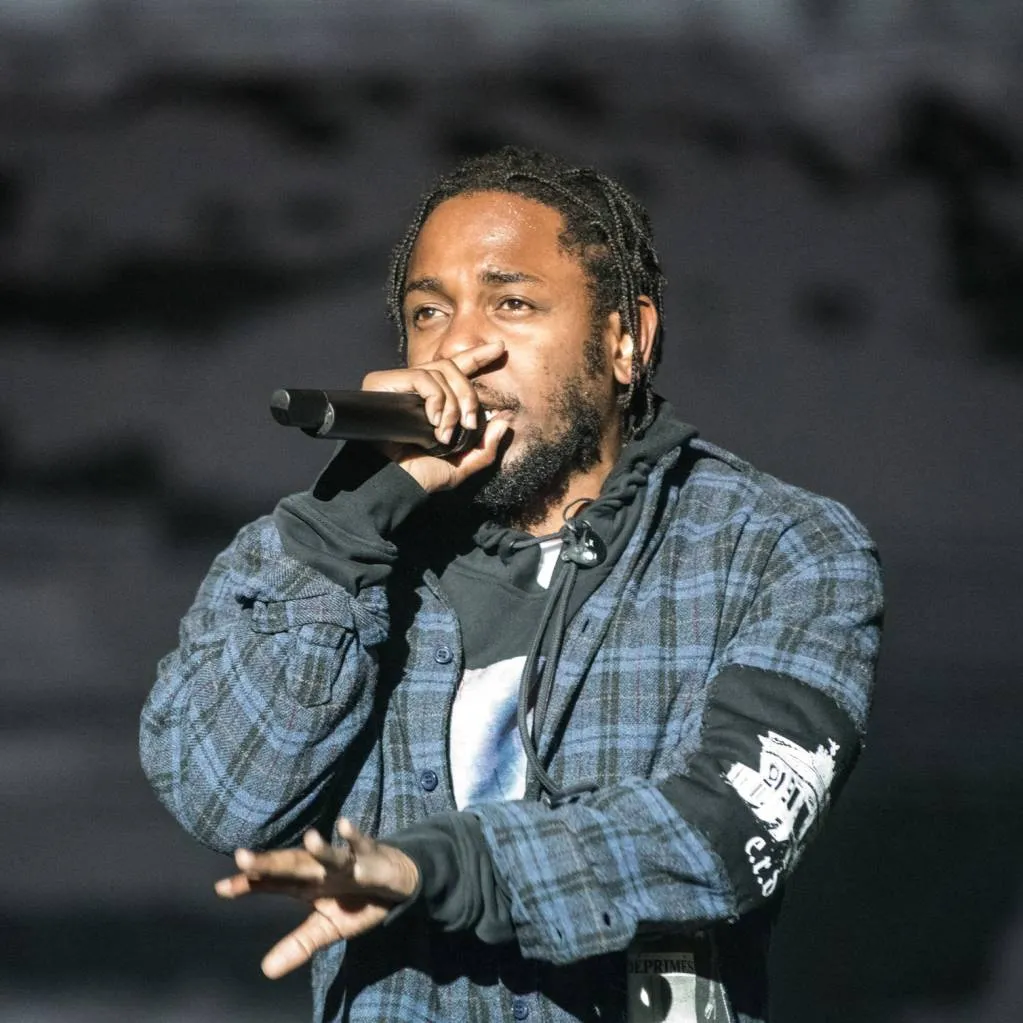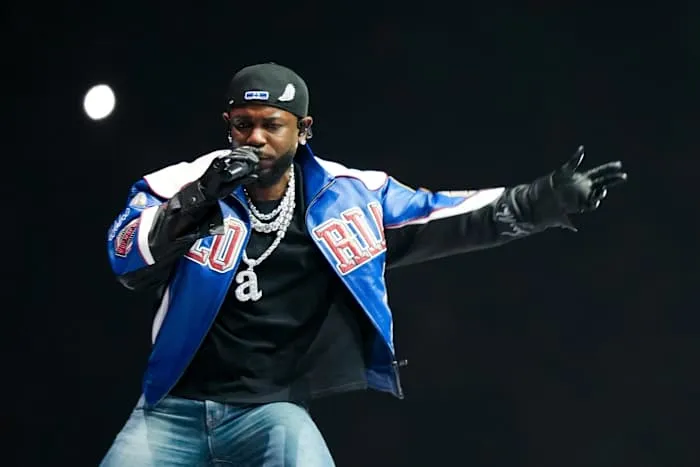

You Won’t Believe Kendrick Lamar Just Got a College Course Dedicated to His Genius
The Unstoppable Rise of Kendrick Lamar
In a world where music is often reduced to fleeting trends and disposable hits, Kendrick Lamar has consistently stood out as a beacon of artistic integrity and cultural depth. From his early mixtapes to his Pulitzer Prize-winning album, DAMN., Kendrick’s evolution as a rapper, poet, and thinker has reshaped the boundaries of modern hip-hop. Now, in an astonishing and well-deserved tribute, one of America’s leading universities has launched a college course dedicated to the genius of Kendrick Lamar, solidifying his place not just in music history but also in academic discourse.

This course is not just about studying music; it’s about understanding the cultural, political, and philosophical messages that Kendrick Lamar masterfully weaves into his lyrics. The fact that an entire academic program is focused on his work is a testament to how deeply his art resonates beyond the realm of entertainment.
A University Honors Kendrick Lamar’s Impact
The decision to create a college course on Kendrick Lamar didn’t come out of nowhere. Over the past decade, Lamar has transformed into more than just a chart-topping artist. His albums—such as good kid, m.A.A.d city, To Pimp a Butterfly, and DAMN.—have become essential listening for those seeking to understand the complexities of Black identity, social justice, and urban struggle in 21st-century America.
The university offering this course, known for its progressive curriculum and focus on cultural studies, recognized that Kendrick Lamar’s work provides rich material for deep intellectual exploration. Students enrolled in the course will not merely listen to his songs or watch his videos—they will analyze his lyrics, study the historical and sociopolitical contexts of his albums, and examine how his work connects to broader movements like Black Lives Matter.
Why Kendrick Lamar Deserves Academic Study
What makes Kendrick Lamar’s music worthy of academic study? The answer lies in his unique ability to blend personal narrative with broader societal commentary. On one level, Kendrick tells his own story—a tale of growing up in Compton, navigating poverty, gang violence, and systemic racism. But beyond that, his albums act as mirrors of society, reflecting the hopes, fears, and struggles of an entire generation.
Take To Pimp a Butterfly, for instance. This album isn’t just a musical masterpiece; it’s a powerful critique of racial inequality, capitalism, and institutional oppression. It draws from jazz, funk, and spoken word traditions, creating a sonic landscape that demands the listener’s full attention. Each song is layered with references to history, politics, and philosophy, making it a goldmine for students eager to decode its messages.
In addition, Kendrick Lamar’s use of language sets him apart. His lyrics are filled with complex metaphors, double entendres, and allusions to literature, religion, and pop culture. This makes his work a perfect fit for academic study, where students can apply techniques from literary criticism, philosophy, and sociology to unpack the meanings hidden within his rhymes.
How the Course Explores Kendrick’s Genius
The new Kendrick Lamar college course promises to offer a rigorous and inspiring curriculum. Students will dive into his entire discography, from his earliest mixtapes to his most recent releases. But the course isn’t just about music; it’s about the ideas that his music sparks.
One area of focus will be Kendrick Lamar’s portrayal of Black masculinity. How does he grapple with the expectations placed on Black men in America? How does he challenge or reinforce stereotypes? These are questions that students will explore through close readings of songs like “The Blacker the Berry”, “DNA.”, and “Alright”.
Another key topic will be spirituality and morality in Kendrick’s work. From his struggles with faith to his meditations on sin and redemption, Kendrick Lamar consistently engages with profound ethical questions. His album DAMN., in particular, reads like a modern-day morality play, with Kendrick positioning himself as both sinner and prophet.
Finally, students will examine Kendrick’s role as a cultural leader. His performances, interviews, and public statements have all contributed to his image as a thoughtful and principled artist. The course will encourage students to consider how Kendrick navigates fame, uses his platform for advocacy, and remains grounded in his community despite global success.
The Cultural Significance of the Course
Launching a college course on Kendrick Lamar is about more than honoring a single artist. It represents a broader shift in how we think about culture and education. For too long, hip-hop was dismissed by academics as unworthy of serious study. But artists like Kendrick Lamar have shattered that prejudice, proving that rap can be as rich in meaning as any novel, poem, or philosophical text.
By offering this course, the university acknowledges that hip-hop is one of the most important cultural movements of our time. It gives students the tools to critically engage with the music they love, to understand its history, and to see how it connects to larger social forces. This kind of study is essential if we want to create a more just and equitable world.
Moreover, the course provides an opportunity to center Black voices and experiences in academia. For too long, educational institutions have prioritized white, Western perspectives. A course on Kendrick Lamar helps to correct this imbalance, offering students a chance to learn from the wisdom and creativity of one of the greatest Black artists of the 21st century.
Student Reactions to the Kendrick Lamar Course
Unsurprisingly, news of the Kendrick Lamar college course has generated excitement among students. Many see it as a chance to study something they are genuinely passionate about. They appreciate the opportunity to combine their love for music with serious intellectual inquiry.
Some students have expressed how Kendrick’s lyrics helped them through difficult times, inspiring them to think critically about their own lives and the world around them. For these students, the course represents a chance to give back—to honor the artist who has given them so much.
Others are eager to engage with challenging topics like race, class, and identity in a supportive academic setting. They see the course as a way to develop their analytical skills, deepen their cultural understanding, and prepare themselves for careers in education, social work, activism, or the arts.
Kendrick’s Response and What This Means for His Legacy
Although Kendrick Lamar has always been humble about his achievements, those close to him report that he is honored by the creation of the course. For an artist who has always seen himself as a vessel for his community’s stories, the recognition from academia is deeply meaningful. It affirms that his work is not only popular but also impactful on a profound level.
This course is likely to be just the beginning. As more universities recognize the importance of studying hip-hop and its leading figures, we can expect to see similar courses dedicated to other artists who have reshaped culture through their music. But Kendrick Lamar’s genius will always stand out. He has set a new standard for what hip-hop can achieve, and his influence will be felt for generations to come.

In the end, this course is about more than just Kendrick Lamar. It’s about what happens when art and education come together. It’s about using music as a tool for understanding the world. And it’s about recognizing that sometimes, the most important lessons don’t come from textbooks—they come from the voices of artists who dare to tell the truth.
The Future of Hip-Hop Studies
The establishment of a Kendrick Lamar college course marks a turning point in the academic study of hip-hop. Once dismissed as a passing fad or a corrupting influence, hip-hop is now rightfully acknowledged as a vital cultural force worthy of serious analysis. This course paves the way for future programs that explore the works of other visionary artists, from Tupac Shakur to Lauryn Hill, from Jay-Z to J. Cole.
More importantly, it shows that universities are beginning to take seriously the experiences, struggles, and triumphs of communities that have historically been marginalized. By studying Kendrick Lamar’s music, students are not just learning about an individual artist—they are learning about the world we live in and the changes we need to make to build a better future.
In short, the creation of a college course on Kendrick Lamar is more than an academic milestone. It is a celebration of art, culture, and the transformative power of music. And it’s a reminder that sometimes, the classroom’s most important texts are not written on paper but recorded in rhyme.



















Post Comment